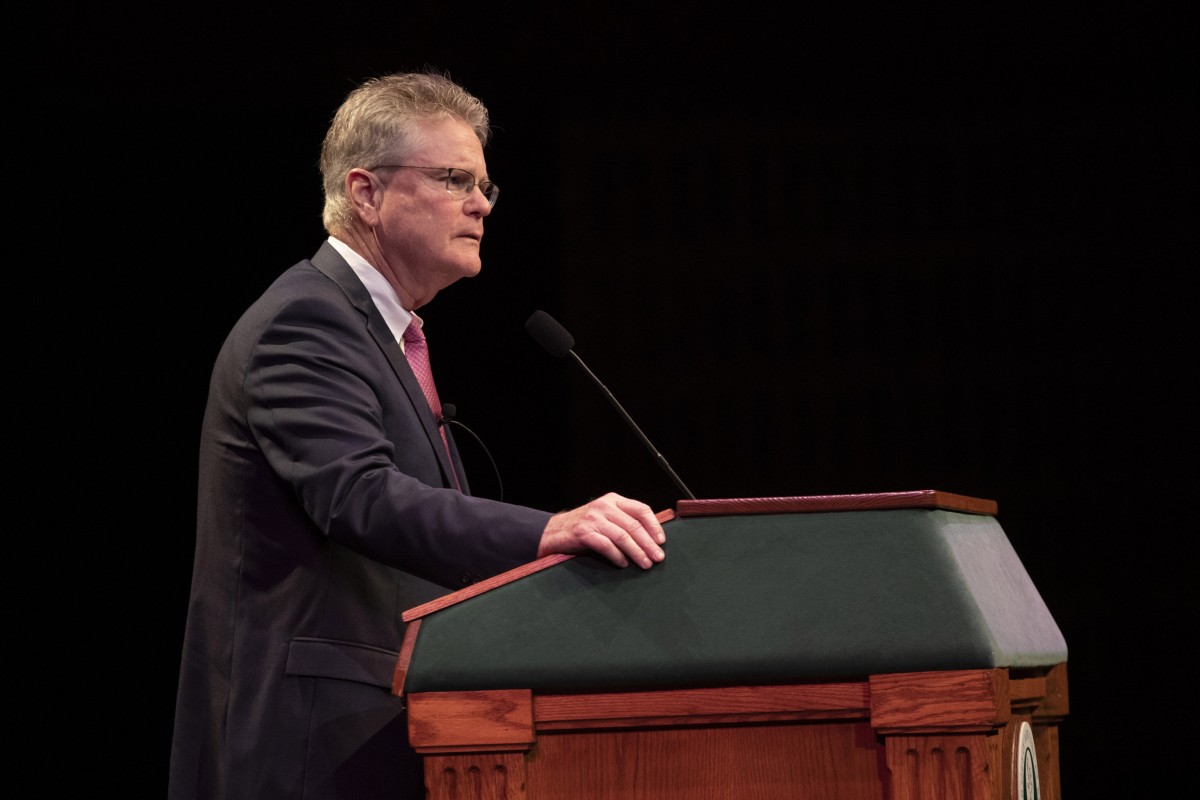The Lisman Lecture Series: Elevating Binghamton’s Clinical Psychology program

The Stephen A. Lisman Annual Lecture in Clinical Psychology, established in 2015 to bring a renowned clinical psychologist to Binghamton each year, recognizes Lisman’s 43 years of service to the University and his contributions to clinical psychology.
Terence M. Keane, MA ’76, PhD ’79, SD ’11 — the largest donor to the endowed fund — is proud to help honor a longtime faculty member who provided him and countless others with rich experiences, and ensure that future generations of Binghamton psychology students will have opportunities for intellectual growth.
“I’ve known Steve for 48 years,” says Keane, professor of psychiatry and clinical psychology at Boston University, where he is also assistant dean of Veterans Affairs research. “I was in the first class of the clinical psychology doctoral program at Binghamton and was Steve’s first doctoral student. Since I completed my dissertation, we’ve remained very close friends and colleagues.”
The lecture series brings prominent psychologists to campus so they can witness the high level of research taking place at Binghamton, expose graduate students to information they might not otherwise obtain from Binghamton’s faculty and elevate the national standing of the clinical psychology program.
“So far, the annual lecture has focused on individuals whose public talks have covered the expanse of their career research accomplishments, how they have affected entire domains of study and practice, and how their future efforts will continue to shape the field,” says Lisman, who retired in 2014 from his position as distinguished teaching professor.
But Lisman and Keane point out that the lecture is more than simply a lecture. A small number of faculty dine with the speaker, which can be particularly beneficial to newer faculty who can learn from such accomplished leaders. Speakers spend time in the lab with faculty who have similar research interests and, importantly, they also meet with students to review theses and dissertations and discuss issues facing graduate education and the psychology profession.
Keane had the opportunity to deliver the Lisman Lecture in 2019, when he discussed the work that has gained him an international reputation as a pre-eminent researcher, scholar and clinician of post-traumatic stress disorder (PTSD). His landmark contributions include better explaining the origin and development of PTSD, and creating sophisticated PTSD assessment, treatment and prevention methods.
“It was a career highlight for me for sure,” says Keane, director of the National Center for Post-Traumatic Stress Disorder’s Behavioral Science Division. “I had a terrific few days in Binghamton, seeing old friends, making new ones. The event was very well attended and we had terrific presence from the local media.”
Binghamton-area mental health professionals made up a sizable contingent of the attendees for Keane’s lecture and that local presence is a sign that the Lisman Lecture is fulfilling its mission.
“When Steve and I first started to talk about this, we wanted the lecture to be an opportunity for Binghamton to help in the education and training of people delivering mental health services,” Keane says. “We provide something that is not readily available to them, and that is top-flight talent speaking on contemporary ways to treat people.”
“The entire endeavor has always filled me with great pride as well as humbled me,” Lisman says. “The humbling is because so many pulled together to create the lecture series and that so many thought it worthwhile enough to contribute the amount of money needed to fund it annually. My pride swells when I consider what the clinical psychology program has accomplished since I arrived as the first assistant professor to help establish a brand-new doctoral program.”

